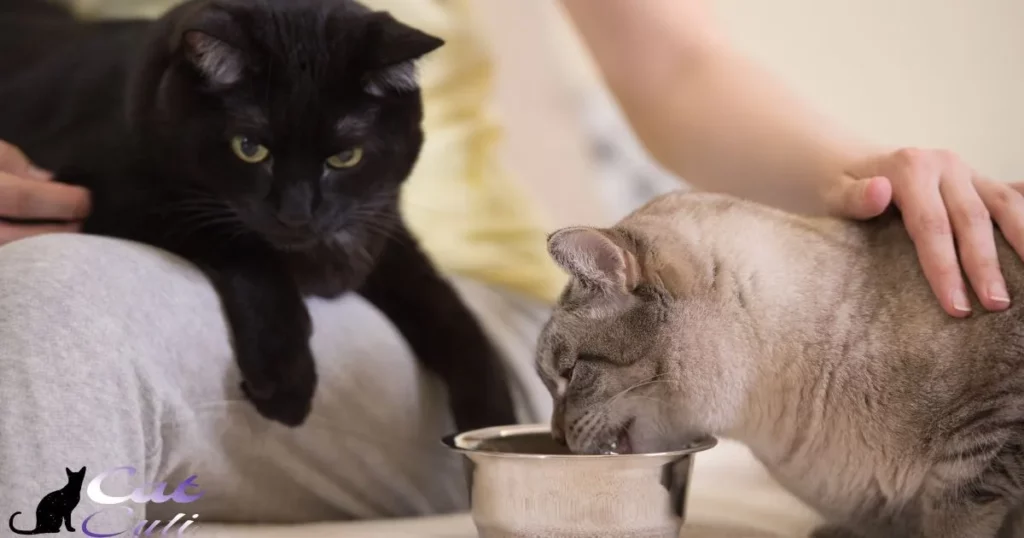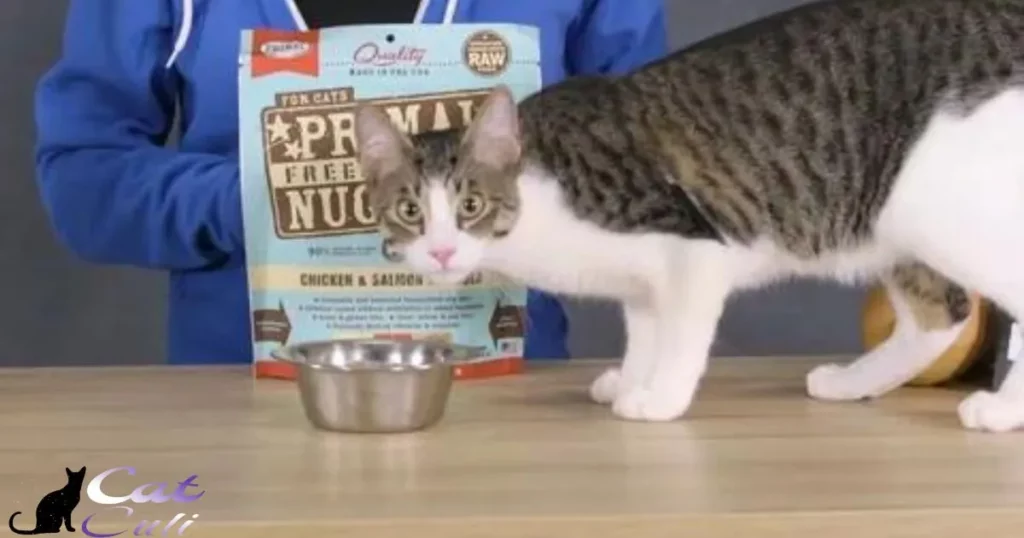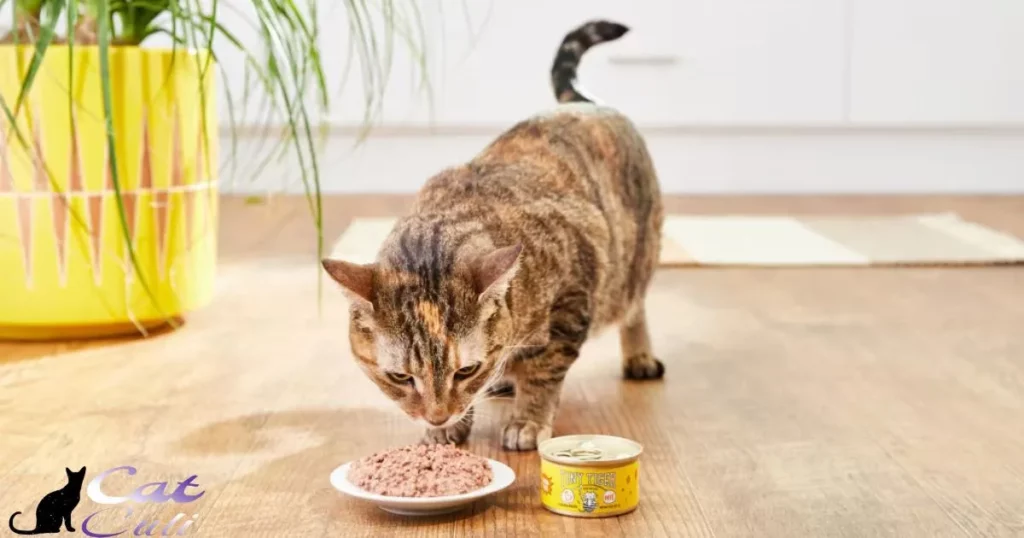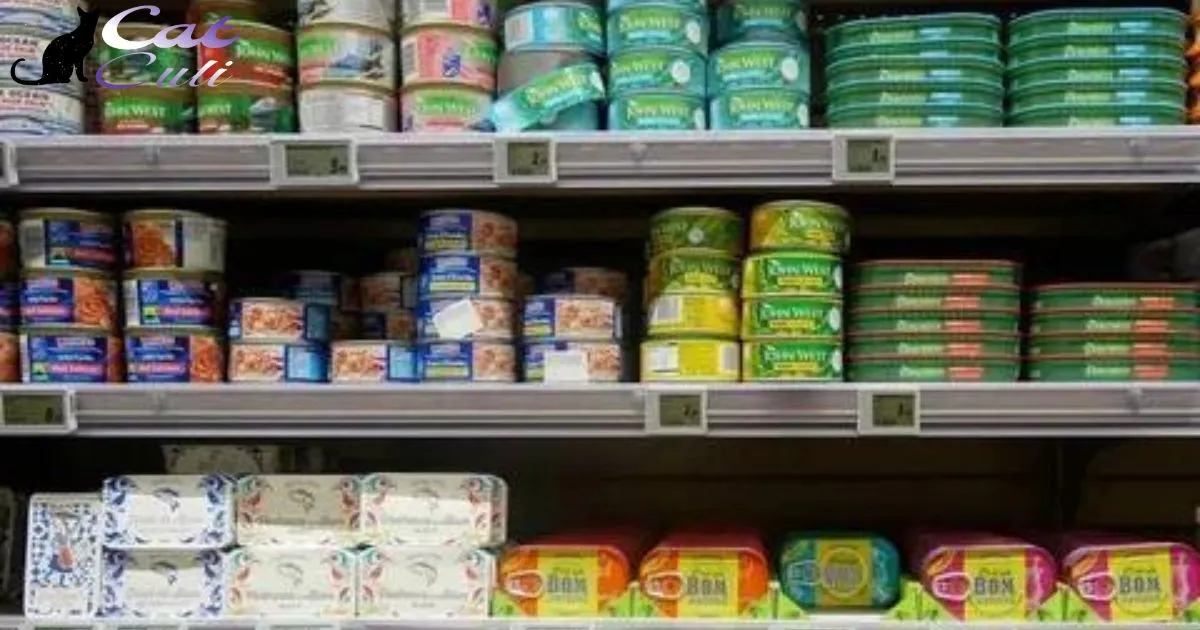Freezing canned cat food is safe and convenient. It helps preserve its freshness and nutrients. Some textures might change after thawing. Always check the label for specific instructions. Overall, freezing canned cat food can be a good option for storage.
Are you wondering, Can you freeze canned cat food? Discover the secret to extending your feline’s favourite meals while keeping their nutrition intact. Freeze canned cat food effectively with simple tips for convenient storage. Uncover how this smart solution ensures your pet’s meals stay fresh for longer periods.
Freezing canned cat food can help maintain its quality and freshness, extending its shelf life. However, some textures might change upon thawing. Stick around to learn the best practices for freezing and thawing to ensure your feline friend enjoys every meal.
Here’s What You Need To Know About Freezing Wet Cat Food
Freezing wet cat food is a viable option for preserving its freshness. It helps extend the food’s shelf life without compromising its nutritional value. Freezing can alter the texture, so it’s essential to consider this before freezing your feline’s meals.
It’s crucial to follow proper guidelines to ensure the food remains safe and enjoyable for your cat.When freezing wet cat food, prioritize using airtight containers to prevent freezer burn and maintain flavour. Remember to label containers with the date to keep track of freshness.
Thaw frozen cat food in the refrigerator and serve it at room temperature to retain its taste and consistency. By understanding these simple steps, you can effectively freeze wet cat food for later use without sacrificing its quality.
Difficulty: Freezing wet cat food is relatively easy and straightforward. It involves using airtight containers and following simple guidelines for proper freezing and thawing.
Duration: The duration for freezing wet cat food depends on how long you intend to store it. Typically, it can be kept frozen for up to a few months without compromising quality.
What You Need: To freeze wet cat food, you’ll need airtight containers or freezer-safe bags to store the food. Make sure to label containers with the date for easy tracking of freshness. Thaw the frozen food in the refrigerator before serving to maintain its taste and texture.
Can You Freeze Cat Food?
Yes, you can freeze cat food! Freezing it helps to preserve its freshness and nutrients for longer. When freezing cat food, ensure proper packaging to maintain its quality, preventing freezer burn or texture changes upon thawing. Storing it properly in airtight containers or freezer bags can extend its shelf life and keep it tasty for your feline friend.
When you freeze cat food, you’re ensuring your pet gets nutritious meals over time. It’s a simple and effective way to manage and store their food, especially if you buy in bulk. By following a few easy steps, you’ll maintain the quality of their meals, providing your cat with delicious and healthy food whenever they need it.
How To Store Cat Food
Storing cat food is simple first, keep it in its original packaging if unopened; it’s designed to maintain freshness. Once opened, transfer it to an airtight container to preserve its flavour and nutrients. Store it in a cool, dry place away from direct sunlight to prevent spoilage and maintain its quality.
Checking the expiration date is crucial. Rotate older food to the front and use it first while ensuring the new stock goes to the back. This practice ensures your furry friend gets the freshest meals every time.
How To Defrost Your Cat’s Food Safely
Defrosting your cat’s food safely is simple! Start by transferring the frozen food to the fridge. This gradual thawing preserves nutrients without compromising safety. Another method is using cold water, sealing the food in a plastic bag and submerging it until thawed. Remember, these methods ensure your cat gets a safe and tasty meal every time.
Keeping your cat’s food safe during defrosting is essential. Using the fridge prevents bacterial growth as the food thaws slowly. The cold water method swiftly defrosts while maintaining food quality. Prioritizing safe defrosting ensures your furry friend enjoys a healthy and delicious meal without any worries.
Keep Your Cat Well-Fed With The Right System

Keeping your cat well-fed relies on the right system. Choose a feeding routine that suits your cat’s needs, ensuring they receive balanced meals regularly. Establish a feeding schedule and stick to it, offering appropriate portions to maintain their health and happiness.
Consider the type of food your cat enjoys and ensure it meets their nutritional requirements. Offering a mix of wet and dry food can provide variety and essential nutrients. A well-organized feeding system is key to keeping your cat content and healthy.
How Can You Defrost Frozen Cat Food?
Defrosting frozen cat food is simple. Start by transferring the frozen food to the fridge. Let it thaw slowly overnight or for a few hours until it’s no longer frozen. Another option is using cold water. Submerge the sealed package in cold water, changing the water every 30 minutes until it’s thawed completely.
Once thawed, ensure the cat food reaches room temperature before serving. Gently mix or stir the food to distribute any temperature differences. This helps maintain consistency and ensures your cat enjoys a consistent meal. By defrosting properly, you’re ready to serve up a delicious and safe meal for your feline friend.
How To Properly Stores Cat Food Without Freezing?
- Use airtight containers: Transfer the cat food from its original packaging to airtight containers to maintain freshness and prevent moisture.
- Store in a cool, dry place: Keep the cat food away from heat and sunlight, preferably in a pantry or cupboard.
- Follow expiry dates: Check the expiration dates and use the oldest food first to ensure it remains within its shelf life.
- Seal packages properly: If using canned food, cover opened cans with lids or store unused portions in sealed containers in the fridge for a few days.
How Can I Leave Wet Cat Food Overnight?
Leaving wet cat food overnight is okay, but there are precautions. Place the food in an airtight container and store it in the refrigerator. This helps prevent spoilage and keeps it safe for your cat to eat the next day. Remember to check for any signs of spoilage before feeding your cat.
To maintain freshness, securely cover refrigerated wet cat food. This preserves quality and shields it from air exposure, minimizing bacterial growth. Refrigerating it overnight ensures safety for your cat’s next-day consumption. Need to warm up refrigerated cat food? Follow safe reheating guidelines for your feline’s meal.
Can You Freeze Wet Cat Food?
Yes, you can freeze wet cat food! Freezing it is a great way to preserve its freshness and nutritional value. Ensure to transfer the food into a freezer-safe container or bag, removing excess air to prevent freezer burn. Thaw the food in the refrigerator before serving it to your cat for the best quality.
Freezing wet cat food doesn’t alter its taste or nutrients significantly. It’s a handy option for storing surplus food or buying in bulk, saving you money while keeping your cat’s meals fresh. Remember to label containers with dates for easy tracking of freshness when using frozen wet cat food.
Can You Freeze Dry Cat Food?

Sure, freezing dry cat food is possible and can extend its shelf life. It’s a simple way to store surplus food, keeping it fresh for longer periods. Remember that freezing might alter the texture, so it’s good to test a small portion before freezing a large batch. This way, you ensure your cat enjoys the same quality food after thawing.
When freezing dry cat food, follow a few easy steps. Transfer the food into airtight containers or resealable bags. Then, label them with the date to keep track of freshness. Place them in the freezer, making sure to use the oldest frozen food first to maintain its quality.
How Should I Freeze Cat Food?
Freezing cat food is simple! First, grab an ice cube tray and spoon the food into each section. Cover it with plastic wrap and pop it into the freezer. Once frozen, transfer the cubes into a freezer bag for easy storage. Remember to label the bag with the date to keep track of freshness.
Another method is using silicone moulds. Fill the moulds, freeze, and then transfer the portions into a sealed container. When you’re ready to feed your cat, defrost only the amount needed for a hassle-free mealtime routine.
Can Cats Eat Frozen Treats
| Frozen Treat | Can Cats Eat It? | Notes |
| Plain Ice | Generally safe | Small amounts may be enjoyable on hot days. |
| Frozen Fruits | Some are safe | Avoid grapes, raisins, and citrus fruits. |
| Plain Yogurt | In moderation | Check for lactose intolerance; opt for plain yoghurt. |
| Frozen Chicken | Cooked only | Ensure it’s fully cooked and free from seasoning. |
| Cat-Safe Ice Cream | Occasionally | Made specifically for cats without harmful additives. |
| Commercial Treats | Check ingredients | Look for treats designed for cats and avoid xylitol. |
How Should I Defrost Cat Food?
Defrosting cat food is easy and important for your pet’s mealtime. The safest way to defrost cat food is by placing it in the refrigerator overnight. Another quick method is by immersing the sealed container in cold water. Never use the microwave to defrost cat food as it can unevenly heat the food, leading to potential hot spots.
Once defrosted, stir the cat food thoroughly to ensure an even temperature. Avoid leaving it at room temperature for extended periods. Always serve defrosted cat food promptly to maintain its quality and keep your feline companion happy and healthy at mealtime.
Can Cat Food Be Frozen?
Yes, you can freeze cat food. Freezing cat food helps to preserve its freshness and nutrients. It’s a simple method to extend the shelf life of your feline’s meals. Be aware that the texture might change slightly after thawing. Always follow recommended guidelines for freezing and thawing to maintain the quality of the food for your cat’s enjoyment.
Freezing cat food is a practical way to store surplus or bulk purchases. It’s a convenient option that allows you to stock up on your cat’s favourite meals without worrying about them spoiling quickly. Just remember to use appropriate freezer-safe containers or bags to keep the food fresh and flavorful for your furry companion.
Freezing Wet Cat Food And Leaving Out
Freezing wet cat food helps keep it fresh longer without losing its nutrients. It’s a smart way to store extra portions or stock up during sales. Leaving wet cat food out for too long can lead to bacterial growth, risking your cat’s health. Always refrigerate or freeze leftover wet food promptly to maintain its quality and safety.
When you freeze wet cat food, you preserve its freshness and prevent spoilage. It’s a handy solution for managing leftovers and ensuring your cat gets top-notch meals. But if you leave wet cat food out at room temperature for extended periods, it can become a breeding ground for bacteria, so it’s crucial to store it properly to keep your pet safe and healthy.
Can You Freeze Cat Food Pouch

Yes, you can freeze cat food pouches for later use. Freezing them helps preserve their freshness and nutrients. Be mindful of the texture changes that might occur upon thawing. It’s best to follow simple guidelines for freezing and thawing to ensure your cat still loves their meal when it’s time to eat.
When considering freezing cat food pouches, check the packaging for specific instructions. Transfer any unused portions into a freezer-safe container or bag. Freezing maintains the quality of the food, but remember to thaw it thoroughly before serving it to your feline friend.
Freeze Cat Food For Automatic Feeder
Freezing cat food for an automatic feeder keeps meals fresh and ready. It’s a smart way to ensure your furry friend always has a timely and nutritious meal available. By freezing portions beforehand, you streamline the feeding process and provide consistent, quality meals without hassle.
Prepare the cat food, portion it, and freeze it in manageable servings. Thaw the frozen food before placing it into the automatic feeder. This simple routine ensures your cat enjoys regular, scheduled meals hassle-free, making life easier for both you and your pet.
How Long Does It Take Frozen Cat Food To Thaw
Frozen cat food usually thaws fairly quickly, often within 30 minutes to an hour at room temperature. Placing the frozen food in the refrigerator overnight can also allow it to thaw gradually. You can speed up the process by submerging the sealed package in cold water, changing the water every 30 minutes until thawed.
The thawing time can vary based on the food’s thickness and how it’s packaged. Thinner portions may thaw faster, while larger blocks or thicker packages might take a bit longer. Never use a microwave to thaw cat food as it can unevenly heat the food and compromise its quality.
FAQ’s
What happens to canned cat food if it freezes?
Freezing alters texture, and can affect taste. Separation might occur, but nutrients generally stay intact.
Can you freeze canned pet food?
Yes, freezing canned pet food is safe. It helps preserve freshness and nutrients for later use.
Can you put cat food in the freezer?
Absolutely! Storing canned cat food in the freezer maintains quality, ensuring it stays fresh longer.
How do you preserve canned cat food?
Keep it airtight in the fridge after opening. Freeze unopened cans for longer shelf life without compromising quality.
Conclusion
In conclusion, the answer to Can you freeze canned cat food? is a resounding yes! Freezing canned cat food is a practical way to extend its shelf life without compromising its nutritional value. By following simple guidelines, like ensuring airtight storage and being mindful of thawing techniques, freezing can maintain the food’s quality.
While freezing is safe and convenient, slight texture changes might occur upon thawing. Nonetheless, this method remains an excellent choice for preserving your feline companion’s meals, ensuring they enjoy every bite of their favourite canned food for longer periods.








